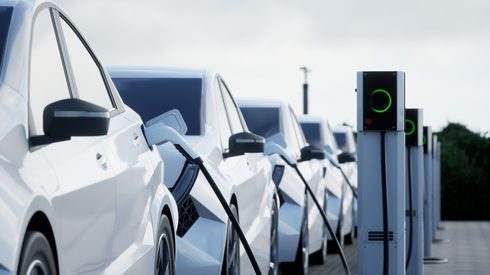The crackdown targets unlicensed mining activities, mining activities of companies with revoked or expired licenses and other criminal activities along the battery raw materials supply chain, according to the local government of Yichun.
All lithium mining companies in the city were ordered to suspend production to cooperate with investigation since Friday, sources said.
However, mining companies with legal licenses were allowed to resume production on Monday afternoon, while other companies without legal licenses remain suspended, a source told Fastmarkets.
Downstream lithium salts production in the city remained unimpacted since the crackdown began on Friday. But with the illegal mining expected to be halted, a total of 20,000-30,000 tonnes of lithium carbonate equivalent (LCE) output is expected to be lost, according to Vicky Zhao, Fastmarkets’ senior analyst.
Yichun is often called the Asian Lithium Capital due to its abundant lithium reserves. Proved lithium oxide reserves in the city total 2.58 million tonnes, which accounts for 23.8% of China’s total, according to Yichun’s Development and Reform Commission.
Lithium carbonate output at full capacity in Yichun city is approximately 10,000 tonnes per month, according to multiple market participants.
Fastmarkets’ analysts forecast global lithium output to be 849,300 tonnes of LCE in 2023, averaging to 70,250 tonnes of LCE per month.
The crackdown on illegal lithium mining in the city came amid a time when China’s lithium prices were on the downtrend, undermined by thin demand and pessimistic outlook from the EV sector.
“There is no small sum of lithium that is mined illegally [in Yichun]. But now that demand for lithium salts is weak and supply is sufficient, the lithium output that could be lost during the crack-down is not able to support lithium prices in China,” a market participant said.
Following news of the crackdown, the lithium carbonate March contract on China’s Liyang E-commerce platform rose to as high as 369,000 yuan ($53,038) per tonne on Monday, from Friday’s closing price at 357,500 yuan per tonne. But it soon dropped and closed at 341,000 yuan per tonne later on the same day.
“It all comes down to thin demand for lithium salts and pessimistic outlook on the near-term demand from the EV sector. That’s why the impact of the crackdown on Chinese lithium prices is likely to be short-lived,” an analyst source said.
“Even if a 10,000 tonnes of lithium salts production is lost [because of lack of feedstock due to the crackdown], the market supply will remain sufficient since the spot market inventory of lithium carbonate is adequate,” a Chinese lithium trader said.
Slow downstream consumption has led to an accumulation of lithium salts in China’s spot market, especially in China’s Qinghai province, where the spot market inventory of lithium carbonate is estimated to be 10,000-20,000 tonnes, multiple market sources told Fastmarkets.
Fastmarkets’ weekly assessment of lithium carbonate, 99.5% Li2CO3 min, battery grade, spot price range exw domestic China was 385,000-400,000 yuan per tonne on Thursday February 23, down by 25,000-40,000 yuan per tonne from 410,000-440,000 yuan per tonne on February 16.
Keep up to date with the latest news and insights in the lithium market by visiting our dedicated lithium page.





